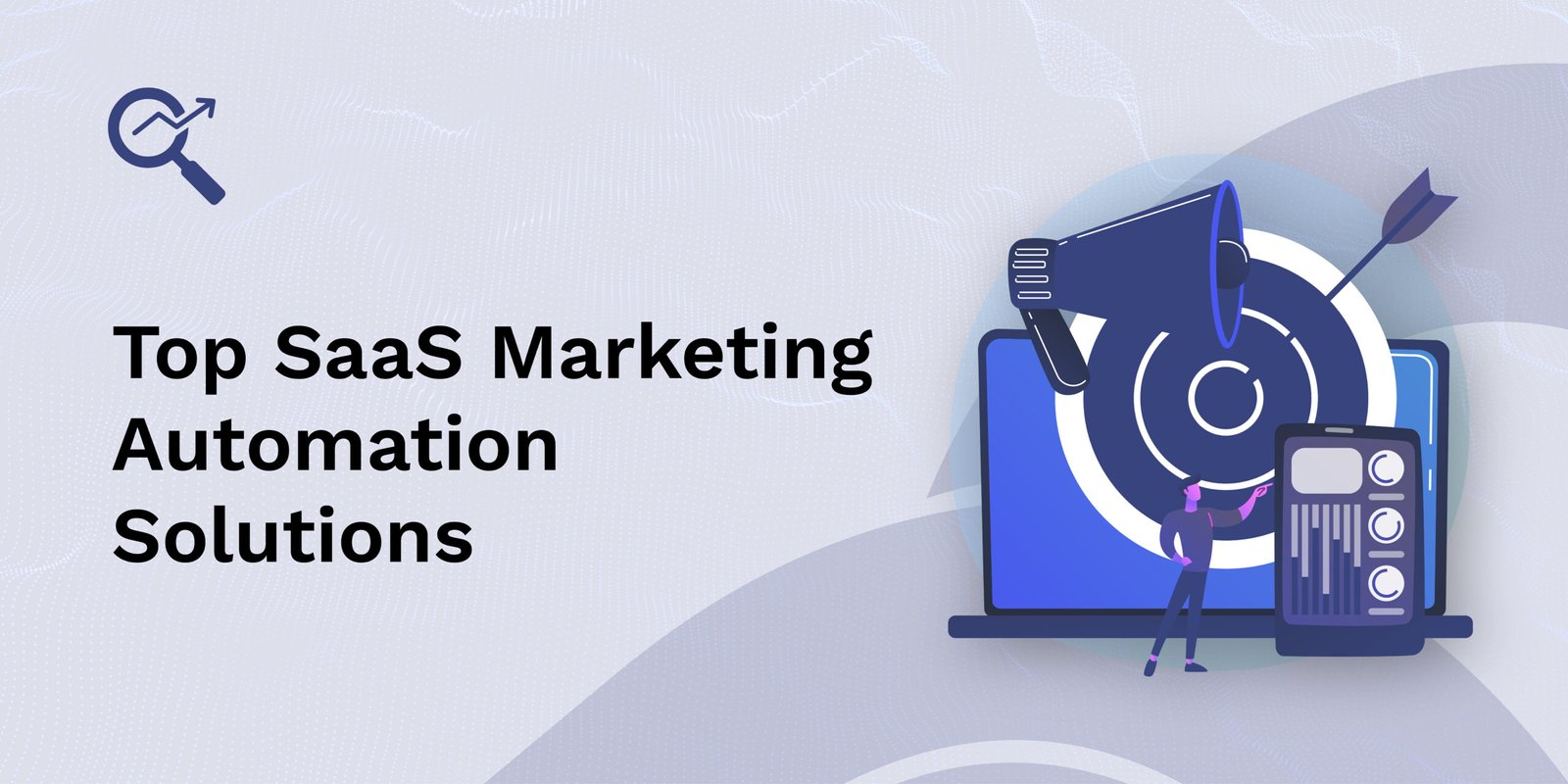Marketing has changed a lot. In 2025, it is faster, smarter, and more connected than ever before. And for SaaS companies, keeping up is not a choice. It is a must. That is where SaaS marketing automation steps in. It helps SaaS brands grow without adding extra work.
So if you are looking for the best tools that can make your life easier and boost your growth, you are in the right place. This guide will walk you through the top SaaS marketing automation solutions in 2025. We will keep things simple, honest, and useful.
What Is SaaS Marketing Automation?
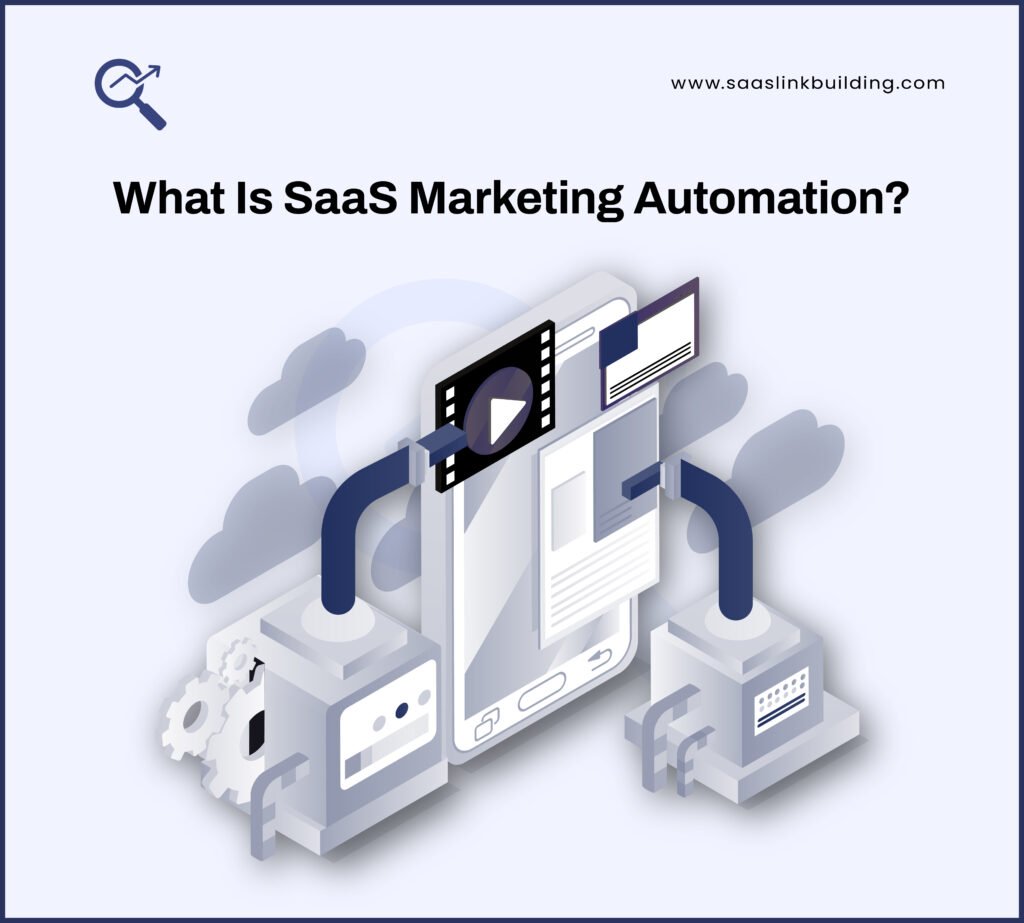
SaaS marketing automation means using software tools to automate marketing tasks for SaaS (Software as a Service) businesses. Instead of doing everything manually — like sending emails, posting on social media, or tracking leads — automation tools do the work for you, saving time and making your marketing more effective.
In simple words, it is like setting up a smart system that works in the background while you focus on growing your business.
What Does It Actually Do?
Here are some of the key things SaaS marketing automation can handle:
- Email Campaigns
Automatically send welcome emails, follow-ups, and newsletters based on user actions or timing. - Lead Nurturing
Score leads, segment users, and send them the right message at the right time. - CRM Integration
Keep customer info updated and synced across tools. - Social Media Scheduling
Plan and post content on social platforms without doing it manually every day. - Analytics and Reporting
Track what’s working and what’s not — without spending hours on reports.
Why Marketing Automation Is Important in 2025?
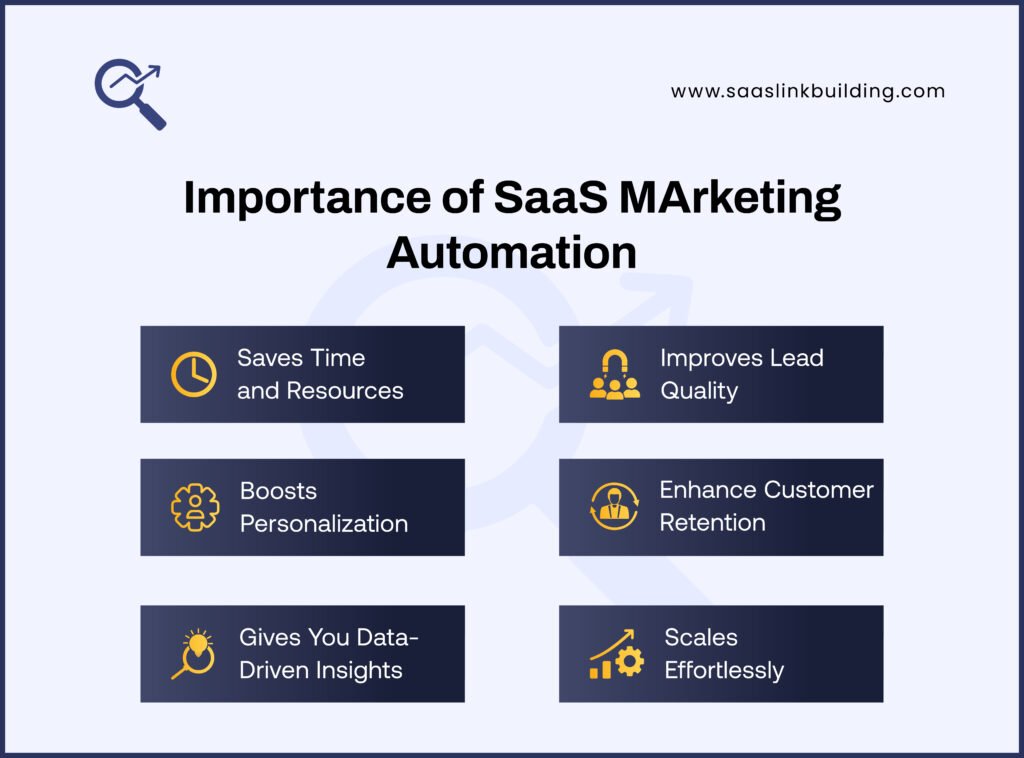
In 2025, SaaS companies are under more pressure than ever to grow fast, keep costs low, and deliver personalized experiences. This is where marketing automation becomes a game changer. Here’s why it matters:
- Saves Time and Resources
Automating emails, lead scoring, and customer journeys means your team can focus on strategy instead of manual tasks. - Improves Lead Quality
Smart tools can score and filter leads based on behavior, helping sales teams talk only to the most interested prospects. - Boosts Personalization
Automation allows you to send the right message to the right person at the right time—based on how they interact with your product or site. - Enhances Customer Retention
Timely reminders, onboarding flows, and re-engagement emails help keep users active and reduce churn. - Gives You Data-Driven Insights
Automated tools track everything—from email opens to in-app behavior—helping you make better marketing decisions. - Scales Effortlessly
Whether you have 100 or 100,000 users, automation keeps things running smoothly without adding more hands to the team.
Best SaaS Marketing Automation Tools in 2025
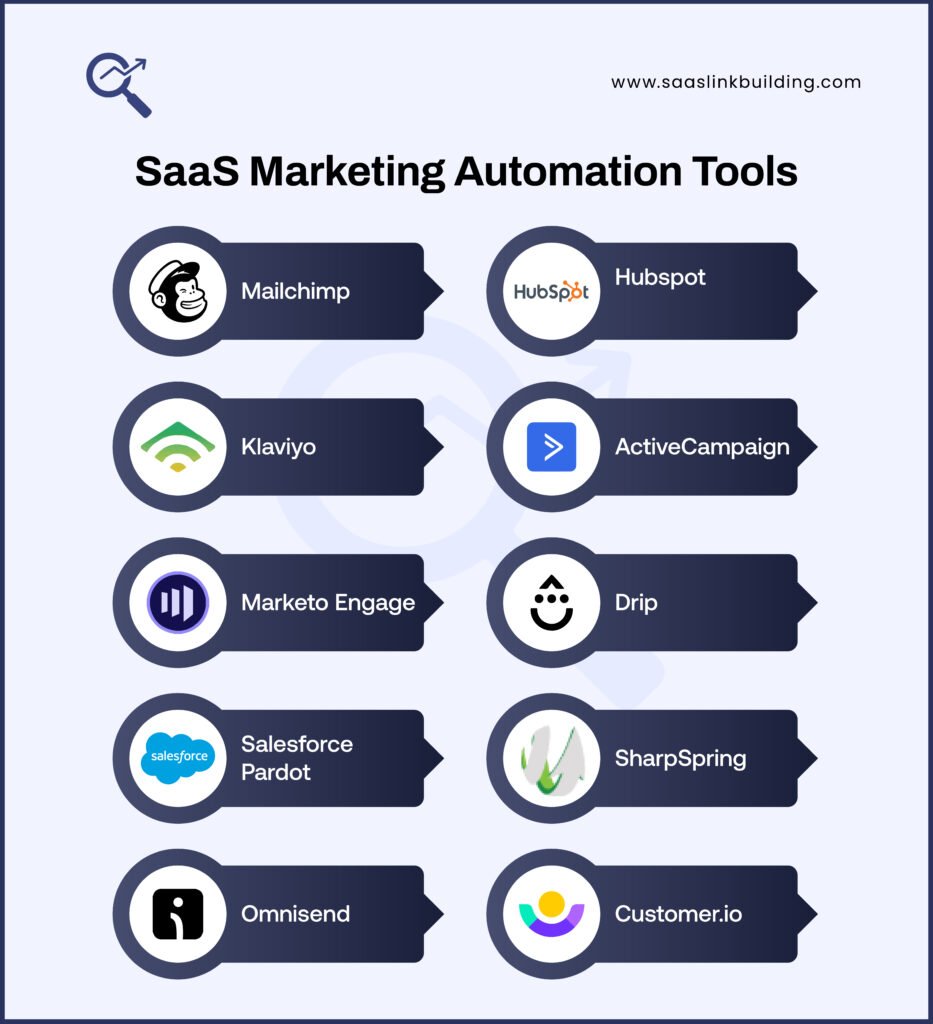
Here’s the most widely used SaaS marketing automation tools, grouped by category. Each one has its strengths, so pick what fits your needs best.
1. All-in-One Marketing Automation Platforms
These tools offer an integrated suite of features covering marketing automation, CRM, analytics, and campaign execution — ideal for teams seeking a unified system.
HubSpot Marketing Hub
HubSpot is one of the most trusted names in inbound marketing. Marketing Hub is its dedicated module for creating and managing customer acquisition campaigns. With HubSpot, businesses can execute and analyze complex marketing strategies without relying on multiple tools.
Key Capabilities:
- Email Automation: Build multi-step workflows with conditional logic, behavior triggers, and personalization.
- CRM Integration: HubSpot CRM is natively integrated, enabling a smooth handoff between marketing and sales teams.
- Content Management: Marketers can create blogs, landing pages, calls-to-action, and forms all within HubSpot.
- SEO & Blogging Tools: Keyword recommendations, on-page SEO tips, and performance metrics built into blog and website tools.
- Lead Scoring & Lifecycle Stages: Automatically prioritize leads based on activity, engagement, and demographics.
- Analytics & Attribution: Track ROI across campaigns and channels, using customizable dashboards and attribution models.
Ideal For:
Growing companies that want a full-stack marketing solution with minimal setup and strong educational support.
ActiveCampaign
ActiveCampaign blends powerful automation with a built-in CRM, allowing businesses to deliver highly personalized, data-driven customer experiences. It’s especially popular among small to medium-sized businesses that want depth without the enterprise-level price or complexity.
Key Capabilities:
- Visual Automation Builder: Design sophisticated marketing flows with branching logic, delays, goals, and triggers.
- Customer Experience Automation (CXA): Integrates marketing, sales, and customer support across email, SMS, and web.
- CRM & Sales Pipelines: Track deals, automate task assignments, and manage pipelines directly from the platform.
- Website Tracking & Event Tracking: See how users interact with your site, and trigger actions based on behavior.
- Conditional Content & Predictive Sending: Deliver dynamic email content and optimize send times using machine learning.
Ideal For:
Businesses wanting high customizability and multichannel automation, especially in the B2C or DTC space.
Marketo Engage (Adobe)
Marketo is a robust, enterprise-grade marketing platform. It’s built for complex organizations with large customer bases, long sales cycles, or multiple business units.
Key Capabilities:
- Lead Management: Score and qualify leads based on behavior and demographics, and route them to appropriate sales reps.
- Multi-Touch Campaigns: Run campaigns across email, web, mobile, social, and advertising channels.
- Account-Based Marketing (ABM): Identify, target, and engage high-value accounts with personalized journeys.
- Real-Time Personalization: Dynamic content that adapts based on user profile or previous engagement.
- Integration with Adobe Experience Cloud: Deep capabilities for data-driven personalization, advanced segmentation, and cross-channel analytics.
Ideal For:
Large enterprises or global organizations that require a scalable and powerful automation engine integrated into broader digital ecosystems.
2. Email Marketing Automation Tools
These platforms focus primarily on email marketing but offer automation and analytics features as well.
Mailchimp
Mailchimp started as an email newsletter tool but has evolved into a marketing platform with automation, basic CRM, and e-commerce features. It remains one of the most user-friendly tools in the market.
Key Capabilities:
- Drag-and-Drop Editor: Intuitive email builder with pre-designed templates.
- Customer Journeys: Automate emails based on behavior (sign-ups, purchases, inactivity).
- Audience Management: Tag, segment, and score contacts based on engagement.
- Multichannel Campaigns: Send emails, social ads, and postcards directly from the platform.
- Reports & A/B Testing: Compare subject lines, content layouts, and campaign timing.
Ideal For:
Freelancers, startups, and small teams seeking a simple and affordable way to engage with audiences.
Drip
Drip is built for eCommerce businesses that want to go beyond basic email marketing and deliver personalized experiences at scale. It supports email, SMS, and onsite popups for conversion.
Key Capabilities:
- Behavior-Based Automation: Trigger emails/SMS based on page visits, cart status, and purchase history.
- E-commerce Integrations: Seamless connections with Shopify, WooCommerce, and Magento.
- Segmentation: Powerful filters based on customer lifetime value (CLV), order history, engagement, etc.
- Revenue Attribution: Track revenue and conversions directly tied to campaigns.
- Pre-Built Playbooks: Ready-made workflows for welcome series, cart recovery, post-purchase, and more.
Ideal For:
Online retailers and DTC brands looking to increase lifetime value and conversion rates using behavior-based marketing.
3. B2B Lead Generation & Nurturing
These tools are ideal for businesses with long or complex sales cycles where lead qualification and relationship nurturing are crucial.
Pardot (Salesforce Marketing Cloud Account Engagement)
Pardot is Salesforce’s B2B automation solution, tightly integrated into the Salesforce CRM environment. It’s best suited for sales-led organizations needing detailed campaign attribution and lead nurturing.
Key Capabilities:
- Lead Grading & Scoring: Rank leads by fit and interest using custom scoring rules.
- Engagement Studio: Visual journey builder for email campaigns and lead nurturing.
- Dynamic Content: Customize content based on account or lead attributes.
- Salesforce Integration: Sync campaigns, opportunities, and contacts natively with the CRM.
- ROI Reporting: Attribute marketing efforts directly to sales pipeline growth.
Ideal For:
B2B firms using Salesforce CRM and requiring high alignment between sales and marketing teams.
SharpSpring
SharpSpring is a cost-effective and flexible platform designed for marketing agencies and SMBs. It provides a full suite of tools, from email automation to CRM and analytics.
Key Capabilities:
- Behavioral Email Automation: Trigger messages based on user activity across channels.
- Built-In CRM: Manage sales pipelines and customer relationships.
- Agency-Friendly Features: White-labeling, client portals, and multi-account management.
- VisitorID: Identifies anonymous site visitors and ties them to contact records.
- Landing Pages & Forms: Create responsive pages with dynamic content and progressive profiling.
Ideal For:
Marketing agencies and SMBs looking for flexibility, client support tools, and a unified platform.
4. E-commerce Focused Marketing Automation
These platforms specialize in eCommerce features like cart recovery, customer segmentation, product recommendations, and revenue tracking.
Klaviyo
Klaviyo is a favorite among DTC brands and Shopify merchants for its deep analytics, real-time segmentation, and campaign revenue tracking.
Key Capabilities:
- Email & SMS Flows: Pre-built automation for abandoned carts, win-backs, post-purchase, and more.
- Data-Driven Segmentation: Real-time segments using behavior, custom metrics, and historical data.
- Dynamic Product Feeds: Personalized recommendations based on past shopping behavior.
- Predictive Analytics: CLV, churn risk, and purchase frequency predictions.
- Integrated Forms & Popups: Capture emails directly from your store or blog.
Ideal For:
eCommerce brands that prioritize personalization and want visibility into marketing ROI.
Omnisend
Omnisend is built for online stores that want to unify email, SMS, and web push campaigns in one place. Its focus is on simplicity and speed.
Key Capabilities:
- Pre-Built Automations: Welcome series, order confirmation, shipping updates, and more.
- Multichannel Campaigns: Combine email, SMS, and push notifications into a single flow.
- Drag-and-Drop Builder: Customize messages with discount codes, product pickers, and dynamic blocks.
- Audience Syncing: Sync lists with Facebook and Google Ads for retargeting.
- Transactional Messaging: Custom order alerts, shipping confirmation, and post-sale emails.
Ideal For:
Mid-sized online retailers looking for an intuitive platform with strong automation capabilities and omnichannel delivery.
5. Advanced Data & Journey Orchestration
Ideal for teams who want precision, API access, and dynamic campaigns based on real-time data.
Iterable
Iterable is a cross-channel platform enabling marketers to build highly customized experiences. It’s favored by companies with a strong data infrastructure.
Key Capabilities:
- Journey Orchestration: Build customer journeys that adjust in real-time based on user behavior.
- Multi-Channel Delivery: Email, SMS, in-app, push notifications, and web.
- Data Activation: Use custom events and metadata to personalize communications.
- Dynamic Templates: Content changes based on time, behavior, and user attributes.
- A/B and Multivariate Testing: Test virtually any component of your message or journey.
Ideal For:
Tech-savvy B2C or SaaS businesses with a focus on real-time data and personalization.
Customer.io
Customer.io is built for developers and product-led companies. It allows complex event-driven automation and highly customized flows using flexible APIs.
Key Capabilities:
- Event-Based Automation: Trigger workflows on specific user or product events.
- Behavioral Segmentation: Target users based on real-time actions and properties.
- Multi-Channel Messaging: Email, SMS, push, in-app, webhooks, and more.
- Liquid Templating: Fine-grained dynamic content control using logic in templates.
- Data Warehousing Support: Integrate with your BI tools or use their advanced API for real-time data sync.
Ideal For:
Developer-centric teams or SaaS platforms with complex user journeys and high customizability requirements.
How To Choose the Right Tool?
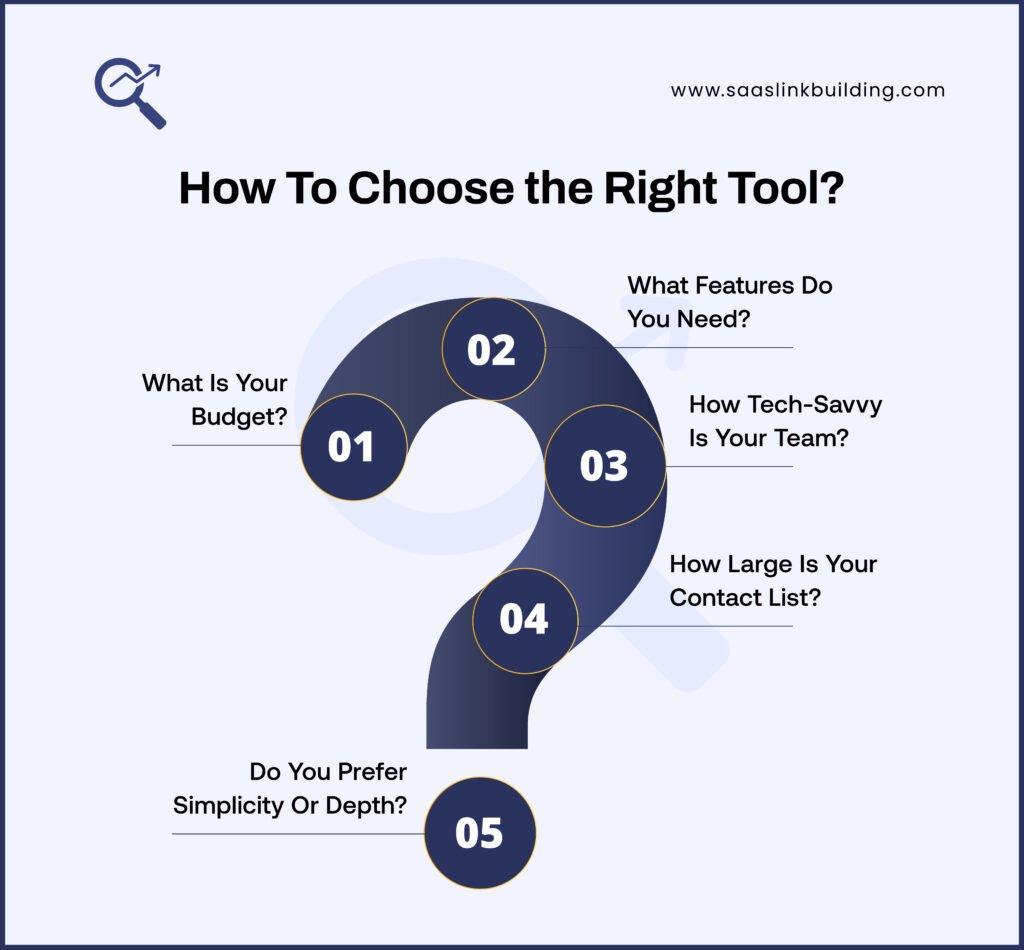
Choosing the right marketing automation tool is not about picking the most popular one—it is about finding what fits your business needs best. Before you decide, take a moment to answer a few key questions:
- What is your budget?
Some tools are budget-friendly for startups, while others are built for enterprise-level businesses. - What features do you need?
Do you only need basic email marketing, or do you want full automation with workflows, lead scoring, and CRM integration? - How tech-savvy is your team?
A beginner-friendly interface is important if your team is not too technical. - How large is your contact list?
Some platforms charge based on contact volume, so choose wisely if your list is growing fast. - Do you prefer simplicity or depth?
Some tools are lightweight and easy to use, while others offer advanced customization and features.
Once you know what matters most to your business:
- Make a shortlist of tools that meet your criteria
- Sign up for free trials to test them firsthand
- Reach out to support to gauge how helpful and responsive they are
While automation tools are key to scaling fast, they work best when combined with a well-planned SaaS marketing strategy. You can explore a broader approach to growth in our complete SaaS marketing guide here.
Tips To Make the Most of Marketing Automation
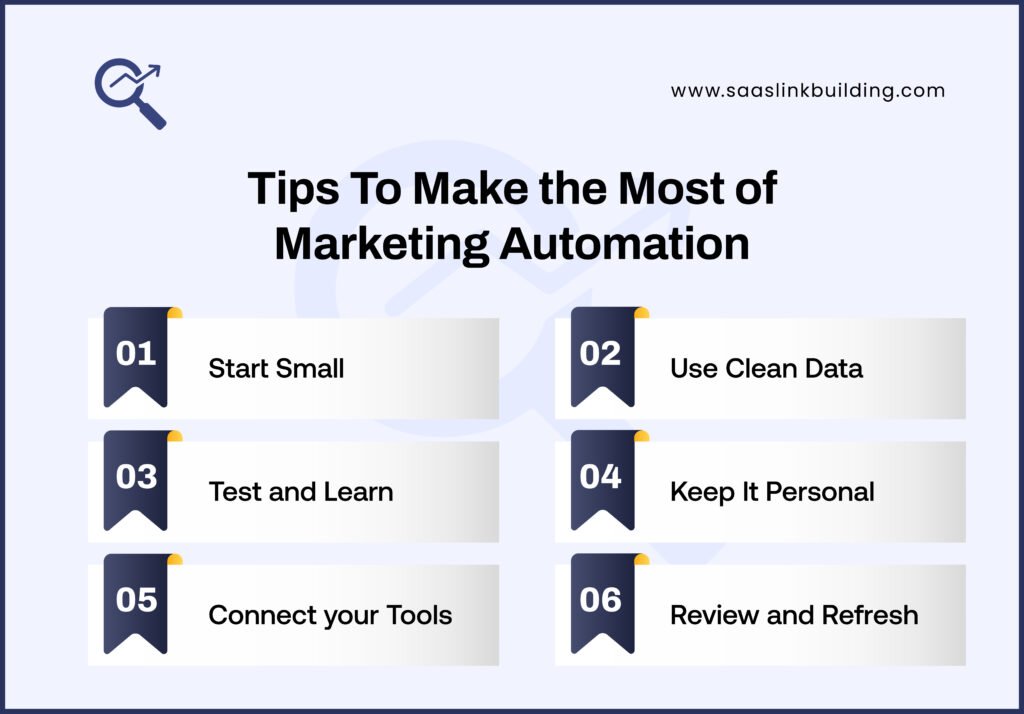
Using a marketing automation tool is a great step, but simply owning the software will not guarantee success. You need the right approach to get real results. Here are a few practical tips to help you make the most out of your marketing automation efforts:
- Start Small
Do not try to automate everything at once. Begin with a few key tasks and scale slowly as you learn what works best for your audience. - Use Clean Data
Your automation is only as good as your data. Make sure your contact lists are accurate and up-to-date. Poor data leads to poor targeting and results. - Test and Learn
Always run A/B tests to understand what messages, subject lines, or timings perform best. Small tweaks can drive big improvements. - Keep It Personal
Automation does not mean robotic. Use customer names, behaviors, and timing to send relevant messages that feel human and thoughtful. - Connect Your Tools
Link your systems using integrations like Zapier or APIs. This helps create a smooth experience across platforms and avoids silos. - Review and Refresh
Set a reminder to review your workflows every few months. Update content, check performance, and adjust for any changes in user behavior.
Future Trends in SaaS Marketing Automation
SaaS marketing automation is evolving fast, and 2025 is shaping up to be a big year. Here are some key trends to watch:
- AI Everywhere
Tools now use AI to suggest actions, create content, and even predict what users will do next. - Voice and Chat Automation
Voice assistants and smart chatbots are helping businesses reply instantly and handle common queries without human effort. - Hyper Micro-Targeting
Marketers can now send messages based on very specific signals—like the exact page a user views or how long they pause on a video. - All-in-One Platforms
Fewer scattered tools and dashboards. Integrated platforms are taking over, offering everything in one clean system. - Rise of Creators
User-generated and creator-led content is being used to build trust and make campaigns more authentic.
Final Thoughts
SaaS marketing in 2025 is not about working more. It is about working smart. The right automation tool saves time, cuts mistakes, and brings in more leads.
You do not need the most expensive tool. You need the one that fits how you work.
Try a few. Test your ideas. Build flows that feel human. That is how you win.
So, which tool will you try first?

